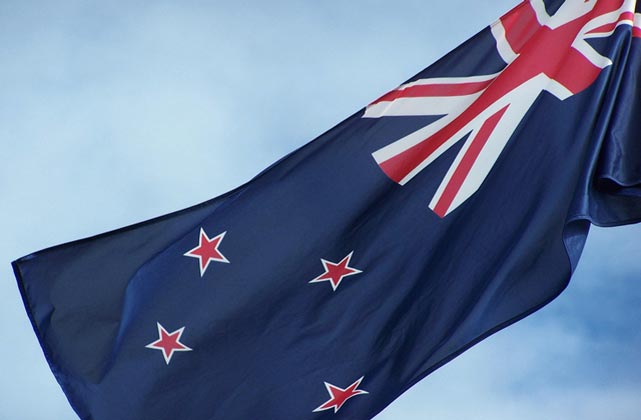Pound New Zealand Dollar (GBP/NZD) Weekly Forecast: Mid-tier Releases Only


The Pound New Zealand Dollar (GBP/NZD) exchange rate gained initially last week as the Pound (GBP) benefitted from upbeat UK employment data. GBP/NZD subsequently weakened, however, as the UK economy was confirmed to have entered a technical recession.
At the time of writing, GBP/NZD is trading at NZ$2.0578, virtually unchanged from last week’s closing levels.
Pound (GBP) Dented by Weak Economic Data
The Pound traded up during the first half of last week’s session, buoyed by news that UK unemployment declined last quarter to its lowest rate since the period between November 2022 and January 2023.
Monday saw minimal movement in GBP exchange rates, but Sterling enjoyed widespread tailwinds on Tuesday following the latest report from the Office for National Statistics (ONS). A softening in wage data failed to dent Pound momentum, as average earnings excluding bonuses increased by 0.2% more than the amount forecast.
On Wednesday however, GBP/NZD plummeted as it was revealed that UK inflation remained at 4% rather than increasing as expected. Investors speculated over whether the pause in rising inflation levels would encourage the Bank of England (BoE) to consider monetary policy loosening.
Thursday brought further headwinds for the Pound, as UK GDP for Q4 2023 printed at –0.3% rather than the –0.1% forecast. The data confirmed that Britain had entered a technical recession at the end of last year, fuelling fears of a dovish pivot from the BoE.
Nevertheless, policymaker Megan Greene gave a hawkish speech on Thursday, in which she reiterated the concerns of fellow Monetary Policy Committee (MPC) member Catherine Mann. Greene said she wanted to see further evidence of fading inflation before considering rate cuts:
‘It’s clear that monetary policy is restrictive in the UK. But in light of the persistence of UK wage and services price pressures, I think policy will need to remain restrictive for some time.’
 On Friday, a greater-than-expected increase in January’s retail sales failed to lend Sterling a significant boost as markets mulled over the BoE’s likely interest rate trajectory. Despite Greene’s comments, investors remained unconvinced the central bank would persist in maintaining restrictive monetary policy.
On Friday, a greater-than-expected increase in January’s retail sales failed to lend Sterling a significant boost as markets mulled over the BoE’s likely interest rate trajectory. Despite Greene’s comments, investors remained unconvinced the central bank would persist in maintaining restrictive monetary policy.
New Zealand Dollar (NZD) Wavers on Mixed Trading Stimuli
The New Zealand Dollar (NZD) faced mixed trading conditions last week amid a scarcity of significant data, varied risk sentiment and disappointing news from Australia.
During Tuesday’s Asian session, Australia’s consumer confidence index from Westpac Banking Corporation printed well above expectations at 6.2% – yet neither the ‘Kiwi’ nor the Australian Dollar (AUD) benefitted from the release, as a downbeat commentary from the Reserve Bank of Australia (RBA)’s Marion Kohler capped gains.
The RBA’s Head of Economic Analysis stoked speculation that the central bank could begin cutting interest rates later in the year, depressing the ‘Aussie’ and the New Zealand Dollar by association. Subsequently, New Zealand’s business inflation expectations printed below forecasts, contributing toward expectations for a more dovish Reserve Bank of New Zealand (RBNZ).
Into Wednesday’s Asian session, NZ food inflation also missed forecasts, yet the ‘Kiwi’ recovered its losses against the Pound. A risk-on mood may have supported the Antipodean currency; ongoing concerns over China’s faltering economy failed to dent the New Zealand Dollar.
On Thursday, bullish momentum continued to support NZD, buoying the currency despite headwinds in the Australian economy: unemployment in Australia increased by 0.2% in January and the economy added fewer jobs than predicted. Also pressuring the ‘Kiwi’ were indications that the RBNZ may soon begin cutting interest rates, although subsequent headwinds were minimal.
At the end of the week, strength in the US Dollar (USD) may have capped New Zealand Dollar gains; yet NZD/GBP nevertheless staged a modest uptrend.
GBP/NZD Exchange Rate Outlook: NZ Producer Prices Revealed
The Pound New Zealand Dollar exchange rate may trade narrowly this week amid a lack of significant data. Mid-tier releases from both the UK and New Zealand may have some effect upon GBP/NZD, however, alongside risk sentiment and other external factors.
Easing producer price inflation may contribute towards impressions that the RBNZ is on the brink of lowering interest rates, if Tuesday’s release prints as forecast. Subsequently, an improvement in UK industrial trends data could support the Pound midweek.
If New Zealand’s trade deficit deepens, the ‘Kiwi’ may weaken, although an expansion of Australia’s service sector could cap losses. On Thursday, NZ credit card data is expected to reveal increased consumer borrowing, further supporting a dovish RBNZ.
Retail sales per quarter are forecast to have fallen in New Zealand in Q4 2023, potentially denting the ‘Kiwi’. If this week’s NZ data collectively demonstrates a struggling economy, GBP/NZD is likely to firm. On the other hand, concerns over the UK recession may cap gains, leaving the exchange rate to trade sideways.
Useful links: Pound to New Zealand Dollar Live | GBP/NZD Forecast 2024, 2025 | Pound-New-Zealand Dollar History | Compare Best Exchange Rates
Source link





